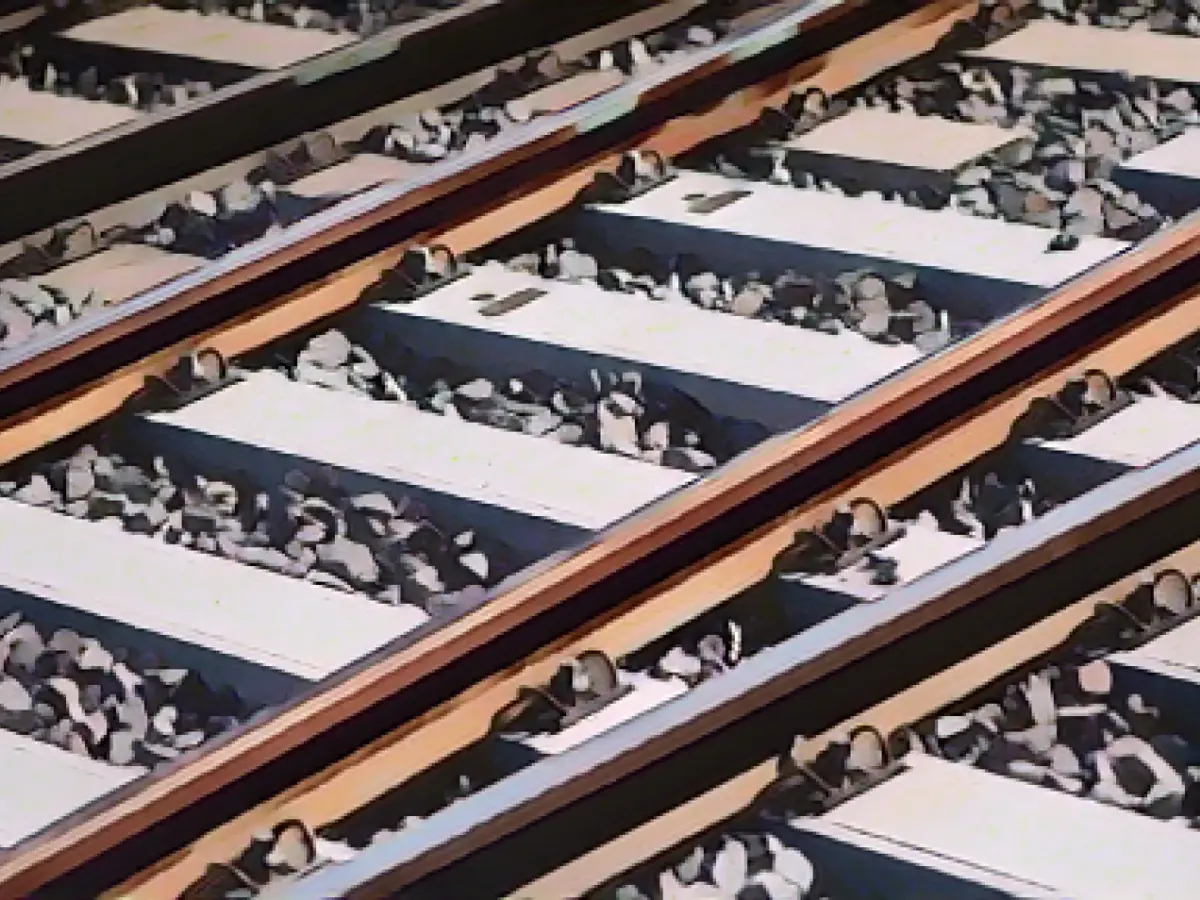Traffic - Secured funding for Lübbenau-Cottbus line extension
Another major step has been taken in the double-track expansion of the Lübbenau-Cottbus railroad line. On Tuesday, Deutsche Bahn, the federal and state governments and the Berlin-Brandenburg Transport Association (VBB) presented the financing agreement. Construction is scheduled to begin at the end of 2026, with trains running every 30 minutes a year later. A total of around 265 million euros will be spent on the expansion. Of this, 255 million will flow through the Coal Regions Investment Act. Brandenburg had made an advance contribution with start-up funding.
The construction project will allow more trains to run in future. According to Deutsche Bahn, in addition to the construction of the second track, twelve level crossings on the almost 30-kilometre-long line will also be modified. A second platform is being built in Raddusch, Kunersdorf and Kolkwitz. Noise barriers are also to be built on the line. The Görlitz Railway from Berlin to Görlitz, which went into operation in 1866, has been single-track between Lübbenau and Cottbus since 1945 because the rails of the second track were taken to the Soviet Union as reparations after the Second World War.
Expansion important for Lusatian development
The double-track expansion plays a key role in the success of structural change in Lusatia, explained regional railroad representative Alexander Kaczmarek. "With the second track, we are creating additional capacity and therefore more stability and services in rail traffic between Berlin and the Spreewald and Lusatia." Brandenburg's Infrastructure Minister Rainer Genilke also sees an important step for the transport turnaround in Brandenburg.
The federal government is supporting structural change in the former coal-mining regions with up to 40 billion euros. The transport projects that are being financed from this will play a decisive role, explained State Secretary Susanne Henckel. Connecting the region is a "hop or skip" criterion when choosing a location.
For the VBB, the federal government's funding commitment proves that the investments made by the states of Berlin and Brandenburg in the planning of the so-called i2030 projects are bearing fruit. "Planning is in full swing for a whole series of rail projects," explained VBB Managing Director Ute Bonde. The transport association hopes that many more federal funding commitments will follow in order to expand regional and suburban rail services.
Connection to ICE maintenance depot
Deutsche Bahn sees a positive side effect: the double track will improve the connection to the new ICE maintenance depot in Cottbus, which will start operations in January and be completed by 2026. The first 400 of 1,200 jobs will be created there when it opens. The skilled workers will mainly come from Lusatia, but also from other regions.
Business and politicians in southern Brandenburg see the expansion as one of the most important points for relocation and immigration. They had criticized the federal government's sluggish planning for the expansion. For the Cottbus Chamber of Industry and Commerce (IHK) and business associations, this project shows what has been lacking in Germany to date: speed in infrastructure expansion. "It will be more than ten years before the second Cottbus-Lübbenau track is completed. However, time horizons such as these are putting the state behind and the region under great time pressure in view of the coal phase-out in 2038," said IHK General Manager Jens Krause.
He pointed out that this is one of twelve rail projects anchored in the Structural Strengthening Act. "Planning has only just begun for three measures and is still open for ten."
The expansion is also not going fast enough for the Federation of Business Associations in Berlin and Brandenburg (UVB). "There are a number of similar projects in Berlin and Brandenburg. We finally need more speed in planning, approval and construction," explained UVB Managing Director Sven Weickert.
Read also:
- A clan member is punished here
- Traffic lawyer warns: Don't talk to the police!
- Will he be convicted as Jutta's murderer after 37 years?
- He also wanted to kill his cousin
- The Lübbenau-Cottbus railroad line, which has been single-track since 1945 due to the Second World War and the subsequent reparations to the Soviet Union, is set to undergo a double-track extension.
- The construction project will not only involve the construction of the second track but also the modification of twelve level crossings and the addition of second platforms in Raddusch, Kunersdorf, and Kolkwitz.
- The expansion of the railroad line is significant for the development of Lusatia, as noted by regional railroad representative Alexander Kaczmarek, who believes it will provide additional capacity and services between Berlin and Spreewald and Lusatia.
- Minister Rainer Genilke of Brandenburg sees the project as an important step for the transport turnaround in Brandenburg, while State Secretary Susanne Henckel acknowledges the federal government's support for structural change in former coal-mining regions like Lusatia.
- For the VBB, the federal government's funding commitment serves as evidence that the efforts made by Berlin and Brandenburg in planning the i2030 projects are bearing fruit.
- The double-track expansion will also enhance the connection to the new ICE maintenance depot in Cottbus, which is scheduled to open in January 2026 and create 400 jobs; most of these skilled workers will come from Lusatia.
- Critics, such as the Cottbus Chamber of Industry and Commerce (IHK) and business associations, argue that the sluggish planning for rail expansion in Germany has put the region under significant pressure in light of the coal phase-out set for 2038, and they call for more expedient action.
Source: www.stern.de








